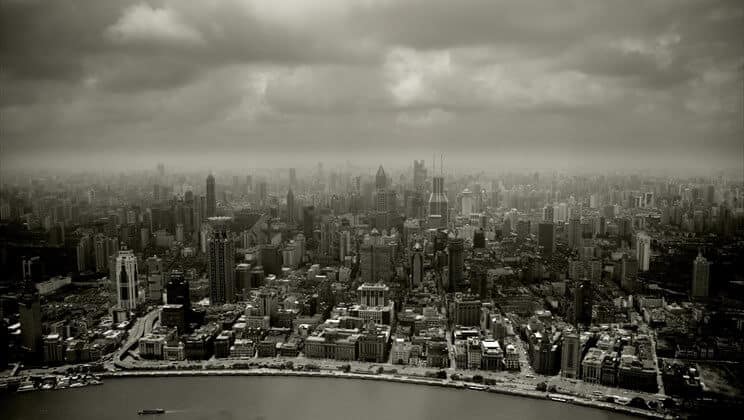Outdoor air pollution in China is so severe that many people wear face masks to filter out airborne particles that pose a serious health threat, and visitors often develop a “Beijing cough,” a dryness and itchiness in the throat.
China is one of the world’s deadliest countries for outdoor air pollution, according to an analysis by the World Health Organization (WHO). Almost half of the Chinese population is exposed to PM2.5, a major pollutant in the air, at a level beyond the highest hazard threshold in the United States. The agency calculated that each year more than 1 million people died from dirty air in China as recently as 2012.
People in China are worried about their health and are looking for solutions. Research by Xi Chen, Ph.D., assistant professor in the Department of Health Policy and Management at the Yale School of Public Health, and colleagues examined the scope of the problem and found that many people are willing to pay a portion of their salary to improve air quality. The findings are published in the journal Ecological Economics.
Taking an innovative “happiness approach,” researchers discovered that families with children are willing to spend a significant amount of their income for better air quality. Specifically, they determined that families with children under the age of six are willing to invest 5.9 percent of their annual income ($120) for a reduction in PM2.5, the small suspended particles in the air that are a major health threat in China. Families without children below the age of six, meanwhile, were willing to spend 3.3 percent of their annual income, or $70.
If the government fails to address the crisis effectively, as indicated by the exacerbating environmental health problems, the expanding gap between economic and social development—combined with growing social frustration over a worsening environment—could devolve into a bigger crisis.”
“According to a WHO air quality report released in 2016, 92 percent of the world’s population lives in places where air quality levels exceed WHO limits. Also, air pollution is more severe in less developed countries, the study on China may shed some light for other developing countries and some developed countries,” said Chen.
Researchers used a nationally representative survey to match happiness with daily air quality data. They estimated the relationship between local concentrations of particulate matter and individual happiness.
Using this data, researchers calculated the monetary value of cutting PM2.5. They also found that the concentration of particulate matter has a significant negative effect on people’s happiness. They say their results are consistent with comparable studies.
It has been well documented that happiness is positively associated with household income but negatively affected by air pollution. Results of this study have important policy implications, the researchers said. China’s 13th Five-Year Plan (running from 2016 to2020) aims for progress in reducing air pollution. Optimal environmental regulations depend on the tradeoffs between benefits and costs. The researchers are confident their study reinforces the value of tightening environmental regulations.
Recently, the choking smog has galvanized public opinion in China, calling for more stringent environment regulations. China’s environmental health crisis is testing the resilience of the state. “If the government fails to address the crisis effectively, as indicated by the exacerbating environmental health problems, the expanding gap between economic and social development—combined with growing social frustration over a worsening environment—could devolve into a bigger crisis,” said Chen.



Chinese authorities have ordered local meteorological bureaus to cease issuing smog alerts. The move has increased fears that that the government is trying to suppress information on the country’s air pollution. Read more about it here: http://www.pollutionairmask.com/local-forecasters-must-stop-issuing-smog-alerts-in-china/
This is only half an article. The other half should show what can be done to reduce the pollution.